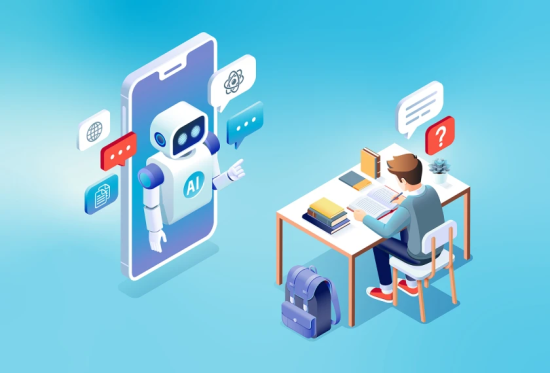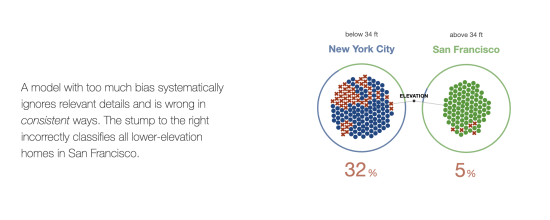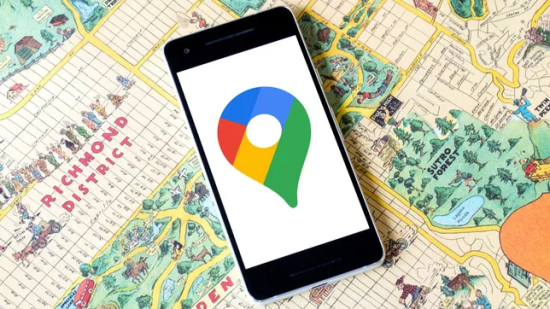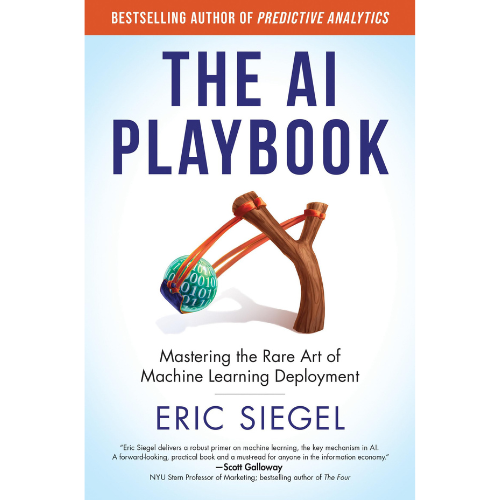
Let’s unpack the week’s tech releases, news, and highlights:
🎓 Trump draft order backs AI learning in schools but faces funding and political hurdles.
📚 Lesson of the Week: Balancing bias and variance to enhance AI learning models that generalize effectively.
🧩 OpenAI may acquire Chrome amid antitrust case delays, impacting its own AI learning search index.
📱 Weekly Tech Tip: Use Google Maps Offline.
🚀 What’s New: Unlock skills, badge display, LTI 1.3 support, and enhanced security for improved AI learning.
📘 Book of the Week: “The AI Playbook” by Eric Siegel – a practical framework for business-focused AI learning.
Get a Quick Lesson In
New Trump Order Could Reshape AI Learning
AI robot assisting student studying at desk.
A draft executive order from former President Donald Trump proposes a national push to integrate AI learning into K-12 education.
It outlines federal support for teacher training, student AI learning literacy, and public-private partnerships, while also proposing a task force and student competition.
However, limited federal resources and political tensions may challenge implementation.
Lesson of the Week
This week’s lesson from “Applying Machine Learning” explores how to balance bias and variance for effective AI learning models that generalize well.
Question of the Week:
What best describes the bias-variance trade-off in machine learning?
Select one:
A) The inverse relationship between bias error and variance error
B) Using either bias error or variance error in a loss function
C) Minimizing irreducible error to remove bias toward a majority class
D) Injecting variance into a dataset to reduce historical bias
See if you’re right–the answer is at the bottom!
OpenAI Eyes Chrome in Antitrust Case
In a landmark development tied to the U.S. Justice Department’s antitrust case against Google, OpenAI has expressed interest in acquiring Chrome if Google is forced to divest the browser.
During court proceedings, OpenAI’s product chief testified about prior outreach to Google for a potential search partnership, citing ongoing issues with their current unnamed provider.
Additionally, OpenAI acknowledged delays in developing its own search index, initially planned to support most ChatGPT queries by the end of 2025.
Weekly Tech Tip
Use Google Maps Offline
Avoid getting lost without signal–download maps before you go.
Here’s how:
-
Open Google Maps > Tap your profile photo > Offline maps
-
Tap Select Your Own Map, zoom/pan to area, and tap Download
-
Or, search a city > tap Download from the info window (iPhone only)
-
Need mobile data? Tap ⚙️ in Offline maps > Download over Wi-Fi or mobile
Stay on track even without service.
What's New
Last week, we introduced skill unlocks after lockout, added badge links to case-based learning, enabled LTI 1.3 Advantage support, and rolled out enhanced security measures across the platform to streamline your AI learning experience.
Book of the Week
In “The AI Playbook,” Eric Siegel presents a practical six-step framework for successfully deploying AI learning in business contexts, addressing common initiative failures outside top tech firms.
The book combines real-world case studies with accessible technical background, bridging the gap between business and data professionals to ensure collaborative, value-driven AI learning outcomes.
Additional Tidbits
Alphabet reaffirms $75 billion spending plan in 2025 despite tariff turmoil
Huawei readies new AI chip for mass shipment as China seeks Nvidia alternatives, sources say
AI economic gains likely to outweigh emissions cost, says IMF
Films made with AI can win Oscars, the Academy rules
Here’s All the Health and Human Services Data DOGE Has Access To
Jump Back Into QuantHub

Lesson of the Week Answer:
A) The inverse relationship between bias error and variance error





